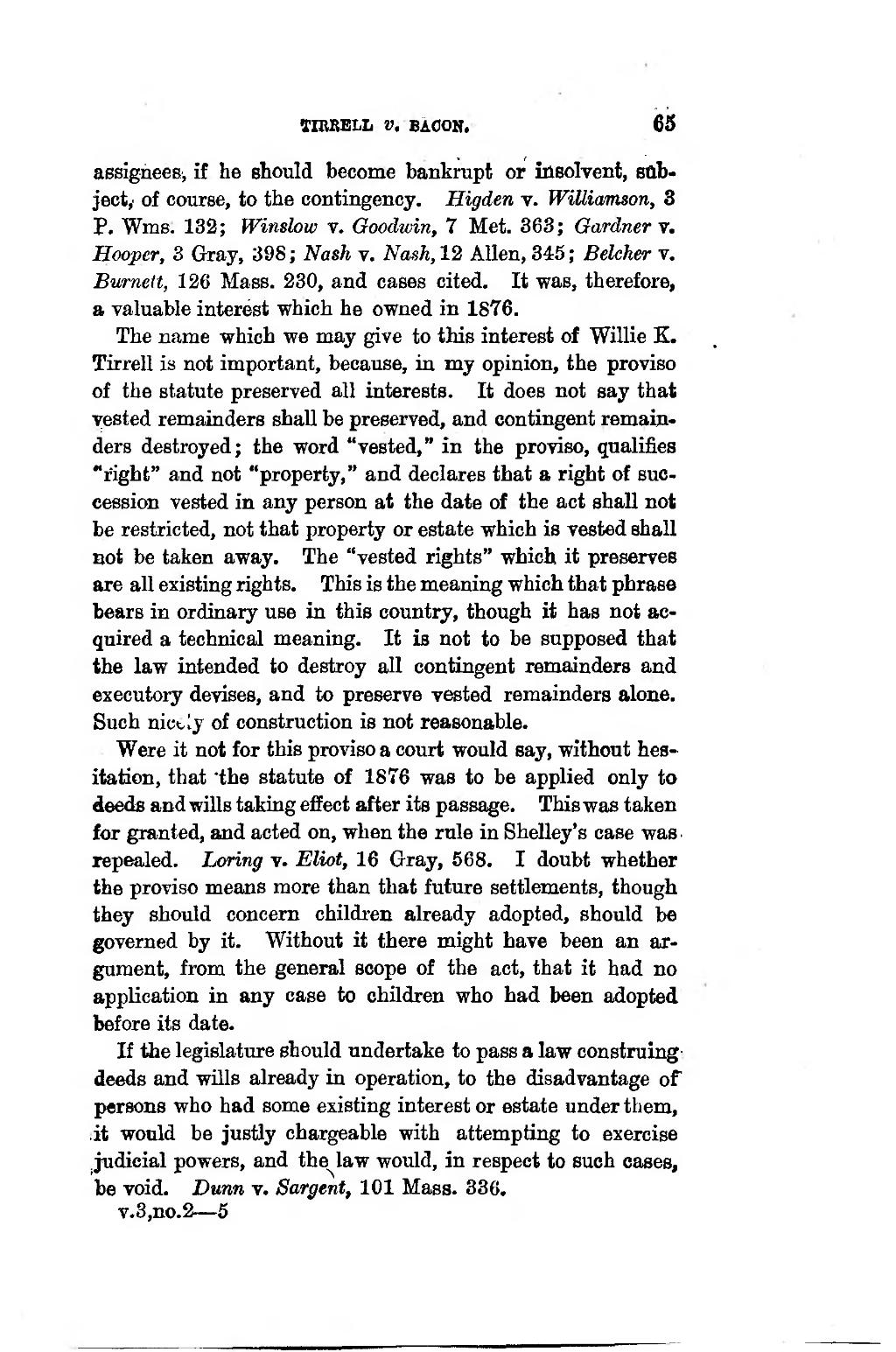TIERELIi r. BAOON. 65 �assignees, if he should become bankrupt or insolvent, sûb- ject, of course, to the contingency. Higden v. Williamson, 3 P, Wms. 132; Winslow v. Qoodwin, 7 Met. 363; Gardner y. Hoopcr, 3 Grray, 398; Nash v. Nash, 12 Allen, 345; Belcher v, Burnett, 126 Mass. 230, and cases cited, It was, therefore, a valuable interest which he owned in 18T6. �The name which we may give to this interest of Willie K. Tirrell is not important, because, in my opinion, the proviso of the statuts preserved ail interests. It does not say that yested remainders shall be preserved, and contingent remain- ders destroyed; the word "vested," in the proviso, qualifies "right" and not "property," and declares that a right of suc- cession vested in any person at the date of the aet shall not be restricted, not that property or estate which is vested shall not be taken away. The "vested rights" which it preserves are ail existing rights. This is the meaning which that phrase bears in ordinary use in this country, though it has not ac- quired a technical meaning. It is not to be supposed that the law intended to destroy ail contingent remainders and executory devises, and to preserve vested remainders alone. Such niccly of construction is not reasonable. �Were it not for this proviso a court would say, without hes- itation, that "the statute of 1876 was to be applied only to deeds and wills taking effect after its passage. This was taken for granted, and acted on, when the rule in Shelley's case was repealed. Loring v. Eliot, 16 Gray, 568. I doubt whether the proviso means more than that future settlements, though they should concern children already adopted, should be governed by it. Without it there might have been an ar- gument, from the general scope of the act, that it had no application in any case to children who had been adopted before its date. �If tiie legislature should undertake to pass a law construing; deeds and wills already in operation, to the disadvantage of persons who had some existing interest or estate under them, it would be justly chargeable with attempting to exercise ^judicial powers, and the law would, in respect to such cases, be void. Dunn v. Sargent, 101 Mass. 336. �v.3,no.2— 6 ����
